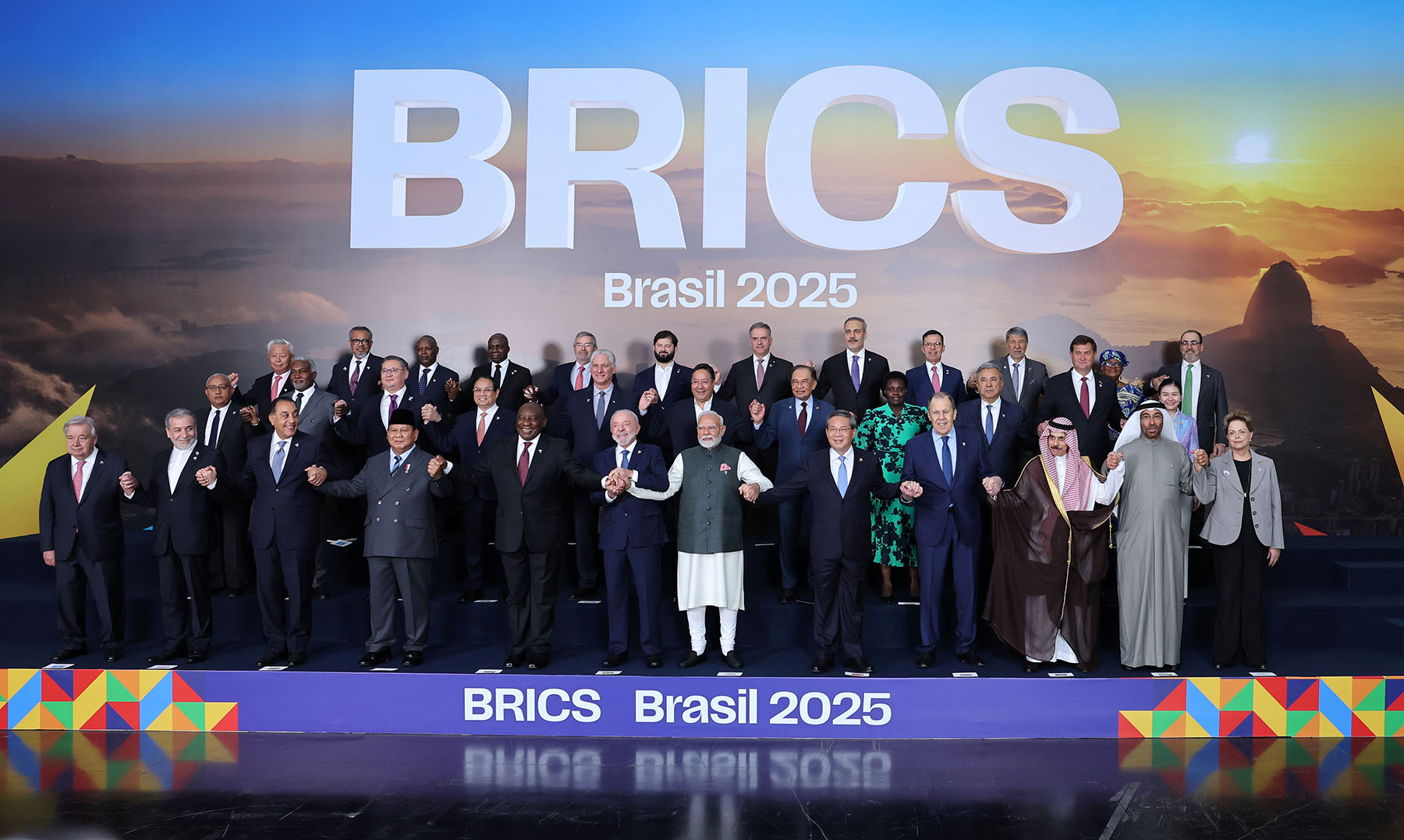Li calls on member nations to support global governance reform at summit

Premier Li Qiang has called on the BRICS countries, which, he said, stand at the forefront of the Global South, to strive to be the pioneering force in advancing global governance reform.
Li made the remarks on July 7 when addressing the plenary session on “Peace and Security and Global Governance Reform” of the 17th BRICS Summit, which was held in Rio de Janeiro, Brazil, on July 6 and 7.
He called on the BRICS countries to work together to uphold justice and safeguard world peace and tranquility, focus on development to bolster economic growth, and advocate inclusiveness to promote exchanges and mutual learning among various civilizations.
Addressing the summit, Li said that transformations unseen in a century are accelerating in the world, international rules and order face serious challenges, and the authority and efficacy of multilateral mechanisms are weakening.
The vision of global governance put forward by President Xi Jinping, characterized by extensive consultation and joint contribution with benefits shared by all, holds even greater value and relevance, he said.
“In the face of heightened differences and disagreements, we need the spirit of equality and respect to enable more extensive consultation,” the premier said. “In the face of deeply intertwined and shared interests, we need united and collaborative actions to enhance our joint contribution.”
Li emphasized that power politics and bullying are never the right way to solve problems, and that the security and development of all countries should be respected.
He said that development should not be a zero-sum game where one profits at the expense of the other, but should be win-win cooperation where all can benefit through mutual assistance.
The premier underlined the need for the BRICS countries to uphold independence and self-reliance, demonstrate a sense of responsibility, and play a greater role in building consensus and synergy.
“When international rules are being undermined and bullying practices are on the rise, we need to stand up for what is right and speak up for justice. We need to act as a positive and stable force for good in the world, promote dispute settlement by peaceful means, and seek solutions that address the root causes based on the true merits of issues,” he said.
Li called on the BRICS countries to play an active part in spearheading development cooperation, unlock growth potential in emerging areas, and continue to explore new space for mutually beneficial cooperation.
He said that this year, China will establish the China-BRICS New Quality Productive Forces Research Center and the BRICS New Industry Golden Egret Excellence Scholarships, which will help BRICS countries train talent in areas such as industry and telecommunications and pursue innovation-driven development.
The summit was presided over by Brazilian President Luiz Inacio Lula da Silva. The leaders of countries participating in the meeting noted that the BRICS cooperation mechanism has continued to grow stronger and more representative, with its international influence rising steadily.
The meeting adopted the Rio de Janeiro Declaration of the 17th BRICS Summit, with BRICS countries promoting inclusive and sustainable global governance.
Entitled “Strengthening Global South Cooperation for More Inclusive and Sustainable Governance”, the joint declaration seals the BRICS group’s 126 commitments covering multilateralism-oriented global governance, security and conflict resolution, finance, health, artificial intelligence, climate change, and other strategic areas, and striving for a more equitable global order.
“With our broad geographical footprint and growing influence, BRICS is uniquely positioned to advocate for reform in global governance structures,” said South African President Cyril Ramaphosa on July 6.
Malaysian Prime Minister Anwar Ibrahim said in a statement that BRICS represents an opportunity to shape a more balanced and just international order, noting that legacy international organizations need to be reformed to reflect the changing global realities and take into account the aspirations of developing nations.
Contact the writer at caodesheng@chinadaily.com.cn


